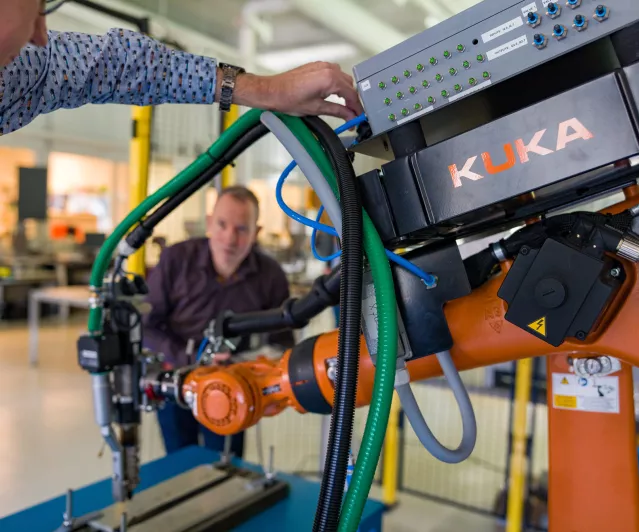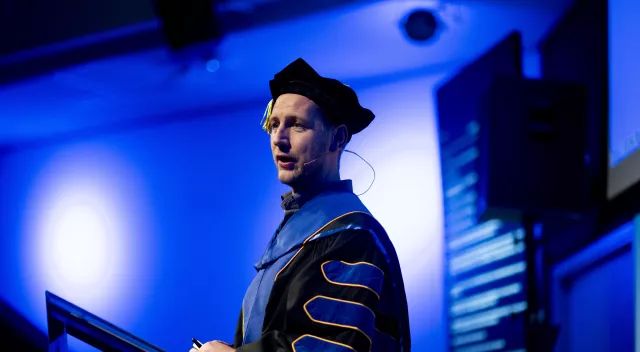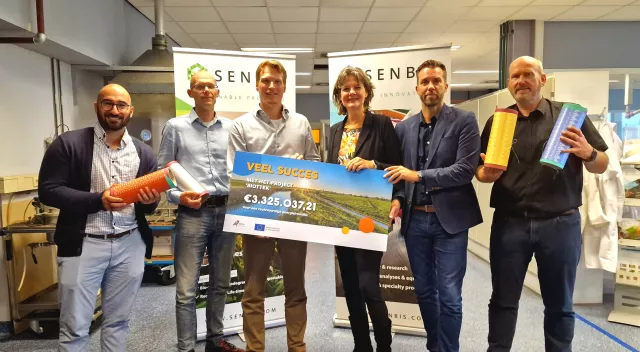
The manufacturing industry is not only an important driver of the (regional) economy but can also play a key role in finding solutions to our societal challenges in the field of the sustainable economy, climate change and an ageing population. The Centre of Expertise for Smart Sustainable Manufacturing brings together education, businesses and public authorities in the Northern Netherlands in an applied research programme aimed at making the manufacturing industry more sustainable for the future. Our motto in this endeavour is: ‘Doing more and better with less’.
Research themes
The Centre of Expertise for Smart Sustainable Manufacturing focuses on 5 core themes: Additive Manufacturing; Robotics & End-of-arm-tooling; Smart systems & Industrial Control; Model Based & Reliability Engineering and Appropriate Training. Each theme is associated with various research projects. Examples include the development of industrial robot applications for both plastic and composite welding and the 3D printing of large objects.
The Centre of Expertise for Expertise Smart Sustainable Manufacturing professorship is in line with the Sustainable Development Goal (SDG) of ‘Sustainable consumption and production’.







